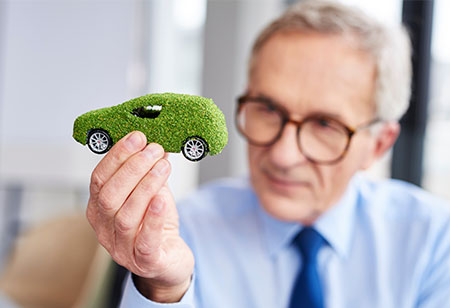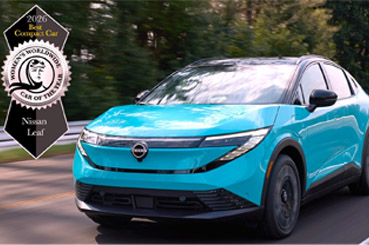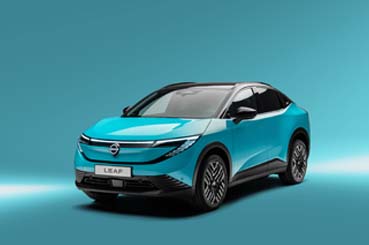In an era of environmental awareness and sustainability, the automotive industry is making significant strides towards eco-friendliness. As climate change concerns intensify, automakers are taking up the mantle to reduce their carbon footprint and embrace green initiatives.
Consulting firm McKinsey predicts that, by 2040, a substantial 60% of emissions in the automotive industry will stem from materials used during production. Hence, the industry is intensifying its efforts to decarbonise its material usage.
In this blog, we will delve into the fascinating world of environmentally-conscious automobiles and how manufacturers are paving the way for a greener future.

The Drive Towards Electric Vehicles
One of the most significant shifts in the automotive industry is the transition from traditional petrol-powered vehicles to electric vehicles (EVs).
Leading manufacturers are investing heavily in EV technology to reduce emissions and promote green initiatives. Notable companies such as Vauxhall, Hyundai, and Kia have been at the forefront of this transformation.
Vauxhall: Electric Streets of Britain Campaign
Vauxhall’s green initiative, the Electric Streets of Britain campaign, aims to support the 40% of households without off-street parking in transitioning to electric vehicles. Collaborating with charge point operators and local councils, Vauxhall seeks to expedite the installation of on-street residential charging infrastructure throughout the UK.
In line with this, the Government has implemented the On-Street Residential Chargepoint Scheme, focused on installing more accessible public charging points for electric car owners lacking private charge points.
However, recent research by Vauxhall reveals concerning statistics: “71.6% of UK councils lack a published strategy for residential on-street charging,” and “69% of local authorities have not yet implemented any on-street residential charge points.”
Furthermore, Vauxhall has partnered with Char.gy, Connected Kerb, and SureCharge, offering funding upwards of £1 million to aid in educating local councils on the optimal approach for deploying this infrastructure.
Starting in 2024, every Vauxhall model will feature a fully electric version, aligning with their goal to become an all-electric brand by 2028.
Sustainable Materials in Vehicle Manufacturing
To further reduce the environmental impact of vehicle production, manufacturers are embracing sustainable materials.
Recycled plastics, eco-friendly fabrics, and lightweight, high-strength materials are becoming the norm. Car manufacturers are increasingly using recycled polyethylene terephthalate (PET) bottles and plastic caps in various interior components, from dashboards to seats. These innovations reduce the carbon footprint while maintaining safety and quality.
Approximately one-third of the 30,000 parts in new vehicles are made from plastic, making recycling a logical choice from an environmental perspective. Though initially more expensive, recycling materials can lead to long-term cost savings, as materials can be reused multiple times without a significant loss of quality.

Embracing ‘Vegan’ Leather
One major change is the shift from traditional leather to ‘vegan’ alternatives. Car manufacturers have long employed synthetic leather, but the emphasis is now on greener choices. Vegan leather can be crafted from various natural sources, including mushrooms and pineapple waste, offering a sustainable sourcing solution.
For example, Volvo, a Swedish automaker, has committed to making its electric vehicles entirely vegan-friendly by 2030. By pledging to exclude leather from 25% of new Volvo cars by 2025, the company showcases a steadfast commitment to sustainable and cruelty-free practices within the automotive industry.
Volvo’s green initiatives not only align with the growing consumer demand for eco-conscious products but also highlight its proactive stance towards reducing environmental impact. This strategic move towards alternative materials underscores Volvo’s dedication to innovation, prioritising the use of sustainable and animal-friendly materials without compromising on luxury or quality.
Efficient Engines and Fuel Economy
In addition to electric vehicles, carmakers are continuously improving the efficiency of traditional internal combustion engines. This includes developing more fuel-efficient engines, reducing emissions, and promoting better fuel economy.
Bio-based materials are also contributing to weight reduction and energy and emissions savings. Companies like Bcomp offer natural-fibre reinforcements to reduce vehicle weight, enhancing performance and efficiency.
Bcomp’s products, supported by investors like Volvo, can reduce weight by up to 50% and cut plastic usage by 70% in interior panels while decreasing CO2 emissions by 60%. Flax fibres form the base of these components, providing a sustainable alternative to emissions-intensive materials like plastic, carbon, and glass fibres.

Integration of Renewable Energy
Eco-friendly practices aren’t limited to the vehicles themselves; they extend to manufacturing plants.
Many manufacturers are incorporating renewable energy sources like solar panels and wind turbines to power their facilities, reducing their reliance on fossil fuels.
The European Initiative
The European Commission has launched the IRISS initiative, aimed at accelerating the transition to sustainably designed materials, products, and processes. CLEPA, the European Association of Automotive Suppliers, is involved in the project, receiving substantial EU investment.
The initiative focuses on analysing safe and sustainable design criteria and researching needs and opportunities for implementation in the automotive sector. It acknowledges that the balance between sustainability, performance, and circularity is shifting in the industry, making a clear strategy for sustainable materials essential.
Green Certifications and Standards
Consumers today are more conscious of the environment and demand eco-friendly vehicles. To meet this green initiative demand, many automakers seek green certifications, such as ISO 14001, to demonstrate their commitment to sustainability.
ISO 14001 is an international standard for environmental management systems. It sets out criteria for an effective environmental management system, helping organisations minimise their impact on the environment. Meeting these standards ensures that both the production process and the final product adhere to eco-friendly practices.
The Role of Technological Advancements
Cutting-edge technology plays a crucial role in the automotive industry’s green initiatives.
Advanced sensors, autonomous driving systems, and data analytics help improve fuel efficiency and reduce emissions.
These technological leaps are not only environmentally responsible but also enhance safety and convenience for drivers.
A Path to Carbon Neutrality
The journey towards carbon neutrality for car manufacturers involves the adoption of renewable and recyclable materials. By utilising less material and choosing sustainable alternatives, the automotive industry is taking steps towards a more sustainable and environmentally friendly future.
As Christian Fischer, Bcomp’s CEO, emphasises sustainable high-performance materials should become the norm by 2030. The industry is moving away from fossil-based materials, promoting material reuse and recycling, and ensuring end-of-life efficiency – all crucial steps in the quest for sustainability in the automotive sector.

The automotive industry is undergoing a profound transformation towards eco-friendliness. Manufacturers are embracing electric vehicles, sustainable materials, fuel-efficient engines, renewable energy, and green certifications. Technological advancements are further driving this transition, making it clear that the automotive industry is not just about transportation but also about preserving our planet for future generations.
By choosing eco-friendly vehicles, consumers can contribute to a sustainable future and reduce their carbon footprint. With continued innovation and consumer support, the automotive industry is making significant strides towards a greener, more environmentally responsible future.
Don’t forget to share this blog on social media to spread the word about green initiatives in the automotive industry. Let’s drive change together!


















